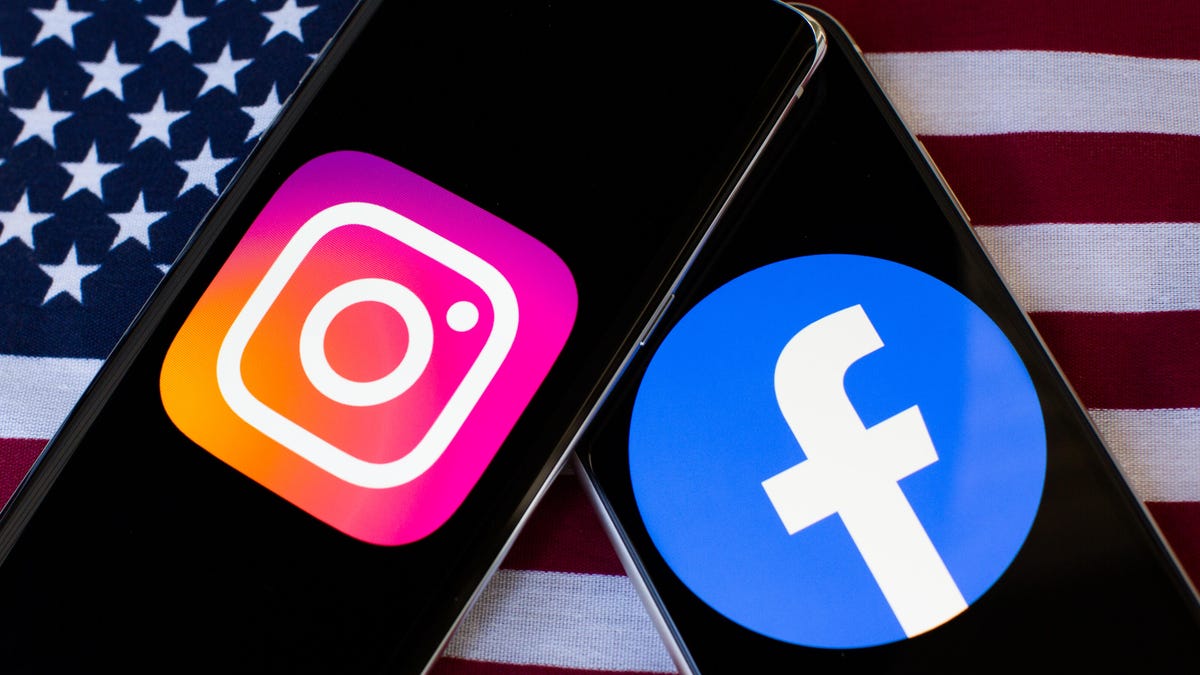Father of slain journalist accuses Facebook of deceiving consumers
Facebook and its Instagram site have failed to police violent content, a new complaint alleges.

Facebook and Instagram are facing more scrutiny.
The father of Alison Parker, a journalist who was shot to death on live television in 2015, urged the Federal Trade Commission and US lawmakers to take action against Facebook and Instagram for failing to remove videos of his daughter's death.
Andy Parker said Tuesday that despite having rules against glorifying violence, Facebook and its photo- and video-sharing site Instagram put the burden on users to police and report this content. In a complaint expected to be filed with the FTC this afternoon, Parker alleges Facebook and Instagram are violating the FTC Act by lying to consumers about the safety of their sites.
"Facebook and Instagram's misrepresentations deceive consumers about the safety of the platform and the difficulty of users securing the removal of violative content," the complaint states. Consumers wouldn't use the sites, he said, if they knew the services "retraumatize" families of murder victims by requiring them to watch and then report violent videos.
The complaint is another example of how Facebook is facing more scrutiny over potential harms. The Wall Street Journal published a series of stories about how Facebook's internal research showed it knew about potential harms but downplayed them publicly. The Journal used documents leaked by former Facebook product manager and whistleblower Frances Haugen, who testified before Congress last week.
Andy Parker
Parker's daughter, a 24-year-old reporter for WDBJ-TV in Roanoke, Virginia, and 27-year-old cameraman Adam Ward were shot by a former co-worker on live television. Video of their deaths, including footage taken by the gunman, spread to social media sites. Parker works with volunteers to flag these videos of his daughter's death, and he says they still remain online today.
Parker filed a similar complaint against Google-owned YouTube in 2020, but he said he hasn't heard back from the FTC. The FTC said consumers can complain to the agency by submitting a letter or filing a complaint with the consumer response center. The FTC doesn't respond to individual complaints filed to the CRC.
"I've maintained for years that Facebook and Google profit from the video of my daughter Alison's murder in 2015," Parker said in a press conference on Tuesday.
Facebook has pushed back against the idea that it puts profits over safety and well being. Facebook is also relying more on artificial intelligence to flag content before a user reports it. On Tuesday, a spokeswoman for the company said they would remove videos of Alison Parker's death.
"These videos violate our policies and we are continuing to remove them from the platform as we have been doing since this disturbing incident first occurred. We are also continuing to proactively detect and remove visually similar videos when they are uploaded," a Facebook spokeswoman said in a statement.
Facebook removed one video of Parker's death shot from the perspective of the gunman after CNET provided a link but similar videos were still easy to find on the platform.
In the press conference, Parker also asked lawmakers to get rid of protections tech companies receive under Section 230, which shields them from liability for content posted by users.
"Congress, you all are disgusted with social media for different reasons, but it's time to come together ... and do something," he said.
Facebook has also suggested changes to Section 230. Nick Clegg, vice president for global affairs and communications at the company, told CNN that lawmakers could make the liability protections under Section 230 given to "online companies like Facebook, contingent on them applying ... their policies as they're supposed to."

